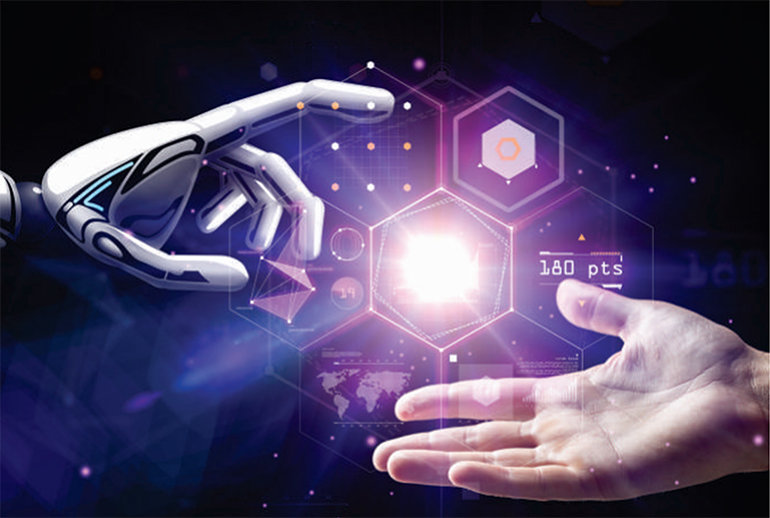 PR Krishnan, Executive Vice President & Global Head EIA & AI, Tata Consultancy Services (TCS), believes that “ethical AI will be one of the potential reasons that drive business revenue in the near future, which is why he encourages embedding ethical AI to become an AI-Ready Enterprise.
PR Krishnan, Executive Vice President & Global Head EIA & AI, Tata Consultancy Services (TCS), believes that “ethical AI will be one of the potential reasons that drive business revenue in the near future, which is why he encourages embedding ethical AI to become an AI-Ready Enterprise.
TCS uses the concept of MFDM™ (Machine First Delivery Model) to address ethics in its AI services and solutions and PR Krishnan's department, EIA & AI, is a strategic unit of Tata Consultancy Services (TCS) that facilitates enterprise-wide automation, leveraging the mentioned machine-first model with robotics, machine learning, and AI. The goal is to support companies in its efforts to embed intelligence and digital technologies in everything from IT operations to business processes and functions to application development.
According to the TCS’s white paper “Enterprise Intelligent Automation & Artificial Intelligence”, businesses adopt to newer technologies willingly in order to gain a competitive edge and thrive in the digital era.
AI is simply one of the crucial technologies that embraces and enhances digital transformation in enterprises, across industries like consumer goods, healthcare, transport, professional services, defence, legal, retail etc. Automating work and embedding intelligence within every process decreases time consumption and ensures multi-fold improvement in productivity for the enterprise, thus freeing up humans to do more intellectual tasks, PR Krishnan explains. Not to mention that AI can enhance human safety, can diagnose deadly diseases and can run million simulated clinical trials to come up with cures for deadly diseases with minimal time and resources.
But he highlights, AI models could also discriminate and make biased decisions without morality – e.g. a self-driving vehicle - leading to increase in risks and uncertainty. The following gives his overview of possible ethical challenges that might arise in an AI model:
- Biased Decisions: Systems using machine learning process can show biasing many a times. Attention should be put to observe why the machine is biased and how it can be eradicated.
- Decision making and liability: Sometimes mistakes are made by the AI models, which leads to serious harm or risk. In such cases, the risk and responsibility will be borne by whom must be decided.
- Transparency: To know the accountability of any action, the clarity of machine reasoning plays the utmost role. For a series of actions, finding out the exact root cause is a tedious task.
- Human values: Human values are very crucial and sensitive. The AI dealing in place of a human must be taught these values so that the machines will act morally and with empathy.
- Data protection: AI can help protect data through its intelligent security systems and models. But it also paves way for hackers to find new loopholes to hack these systems, which might lead to several issues like loss of data privacy, robbery of crypto currency etc.
- Misinformation: AI can easily be manipulated as machines do not have the capability of distinguishing reality from fake. They tend to believe any information is true if it has evidence.
According to PR Krishnan, “MFDM makes the enterprise ‘AI-ready’, combining the here and now value of automation with the futureproof architecture that allows to incrementally leverage AI capabilities from multiple sources.” “Ensuring AI ethical models will help MFDM in harnessing the process for being more human centric, transparent &explainable, fair, safe and trustworthy”, he says. Hence, providing utmost solutions to the enterprises by balancing all ethical challenges, implementing guidelines and providing solutions has become an integral functioning of MFDM.
By Daniela La Marca


